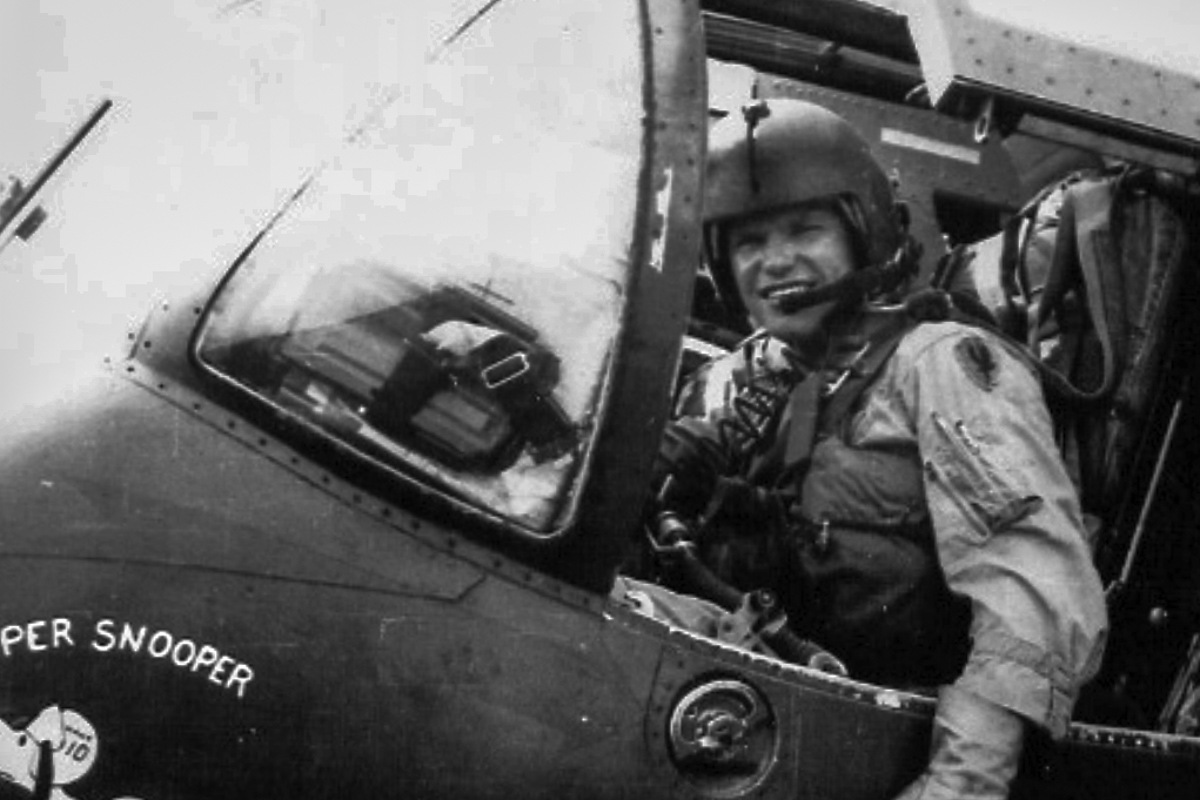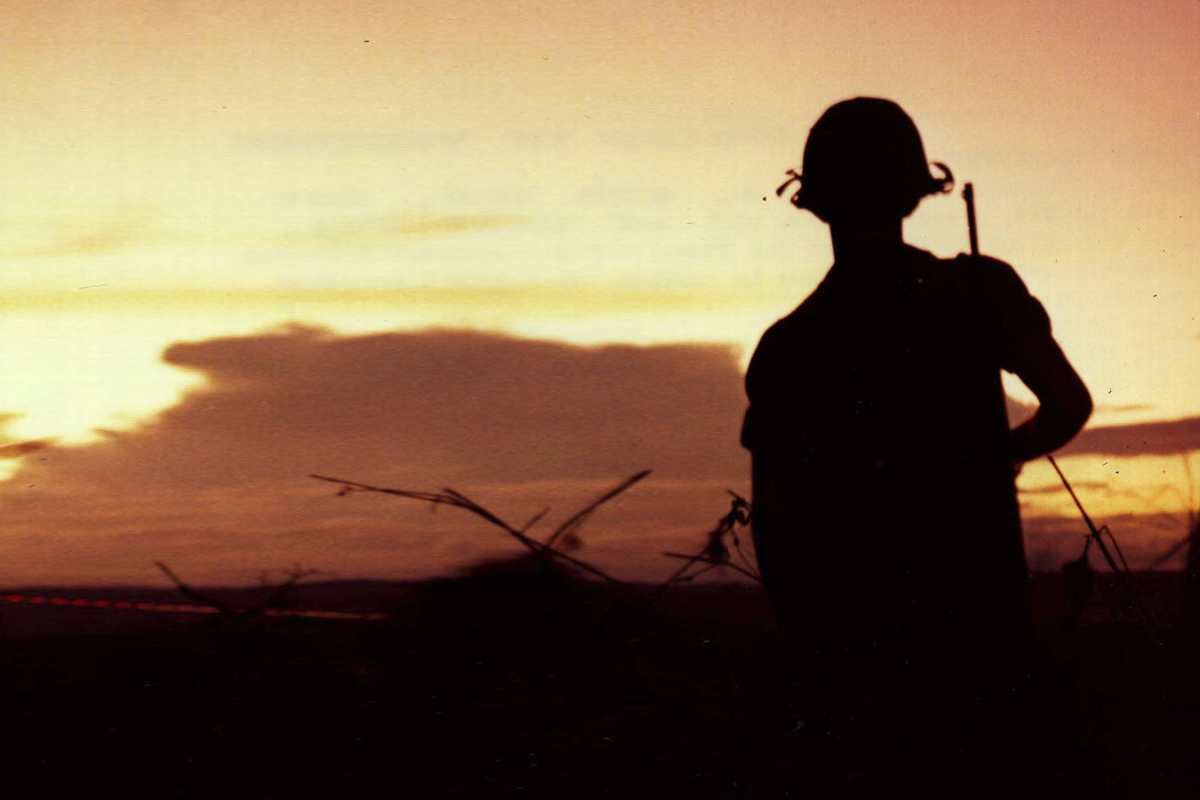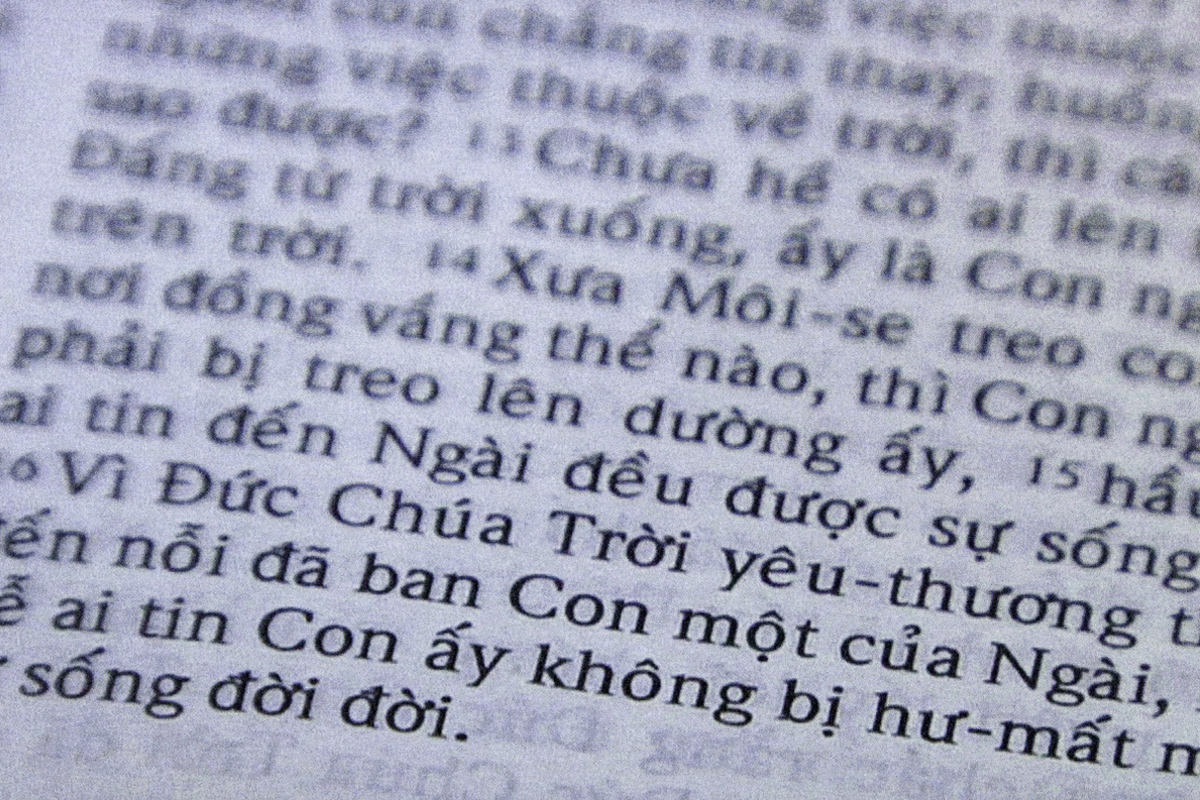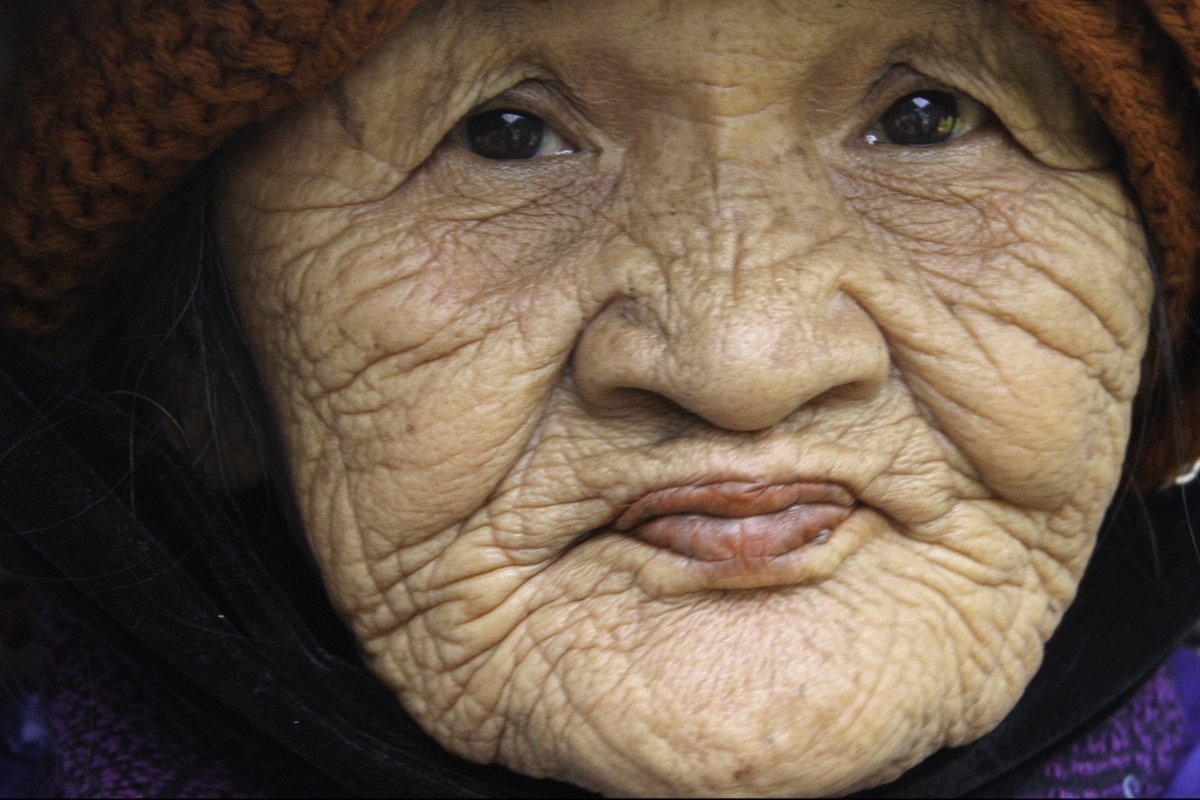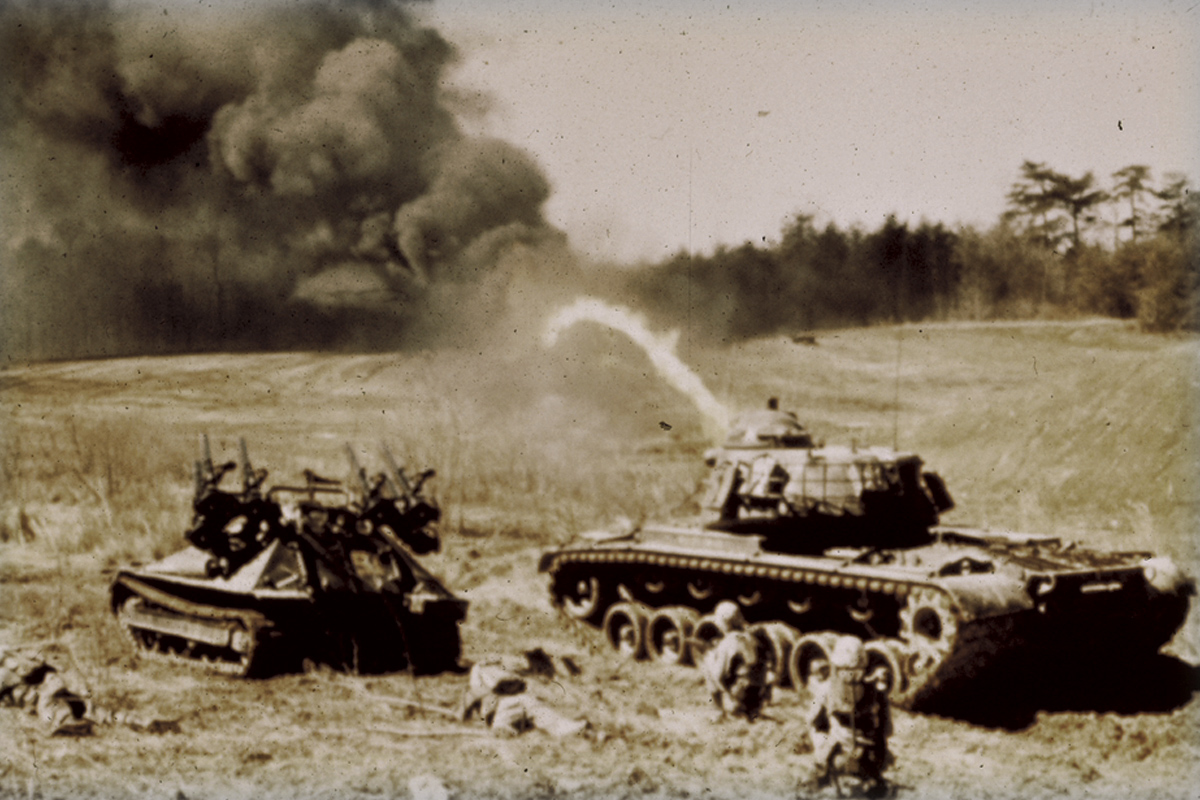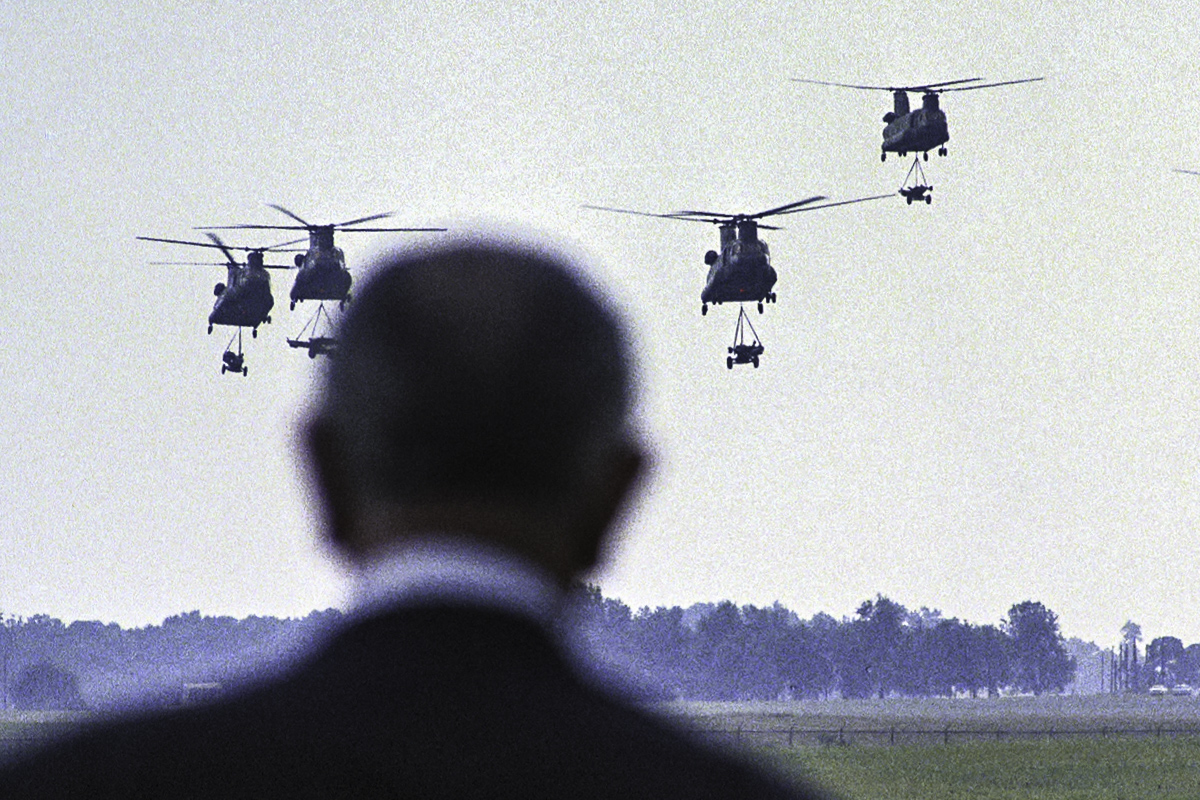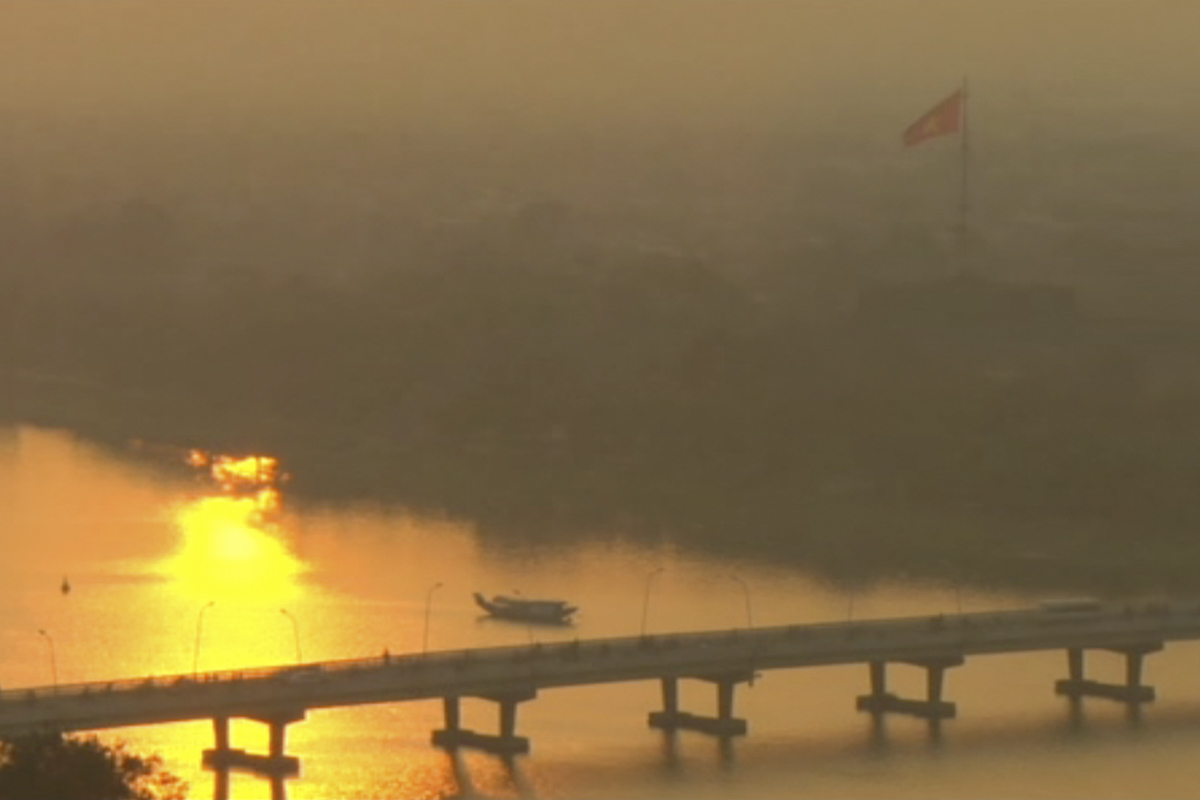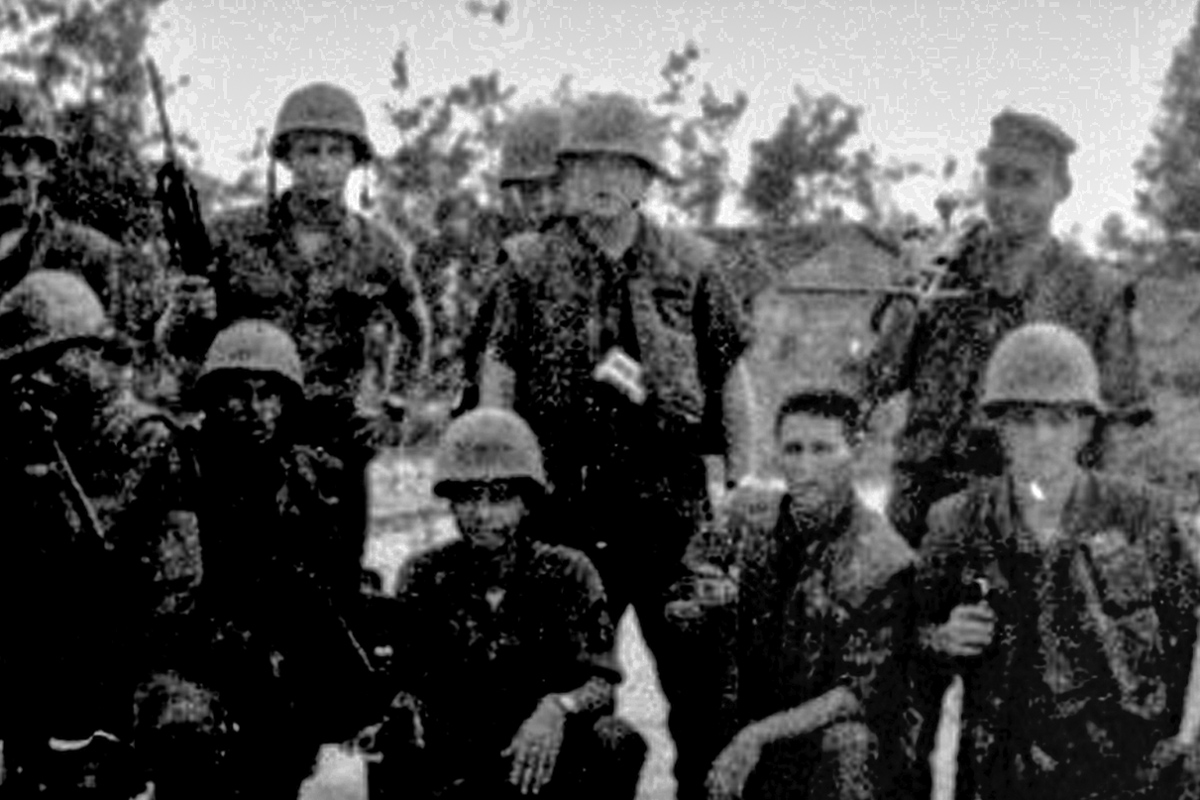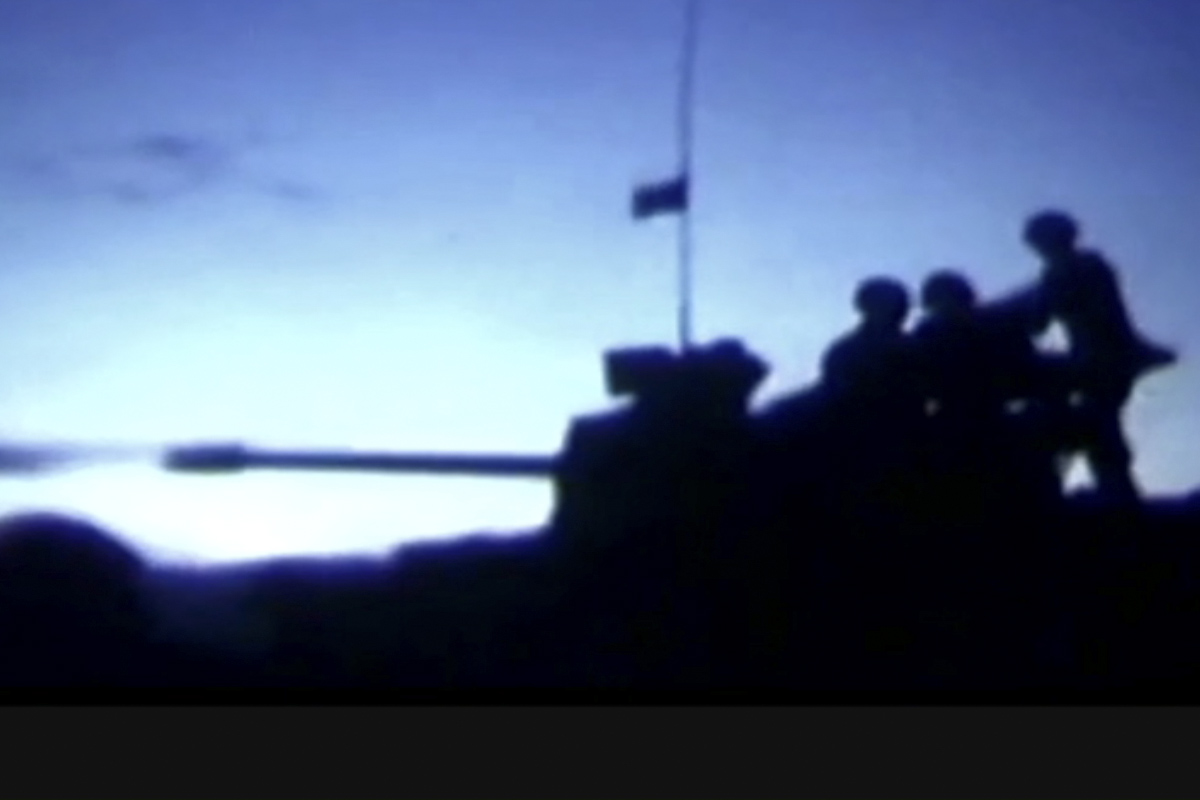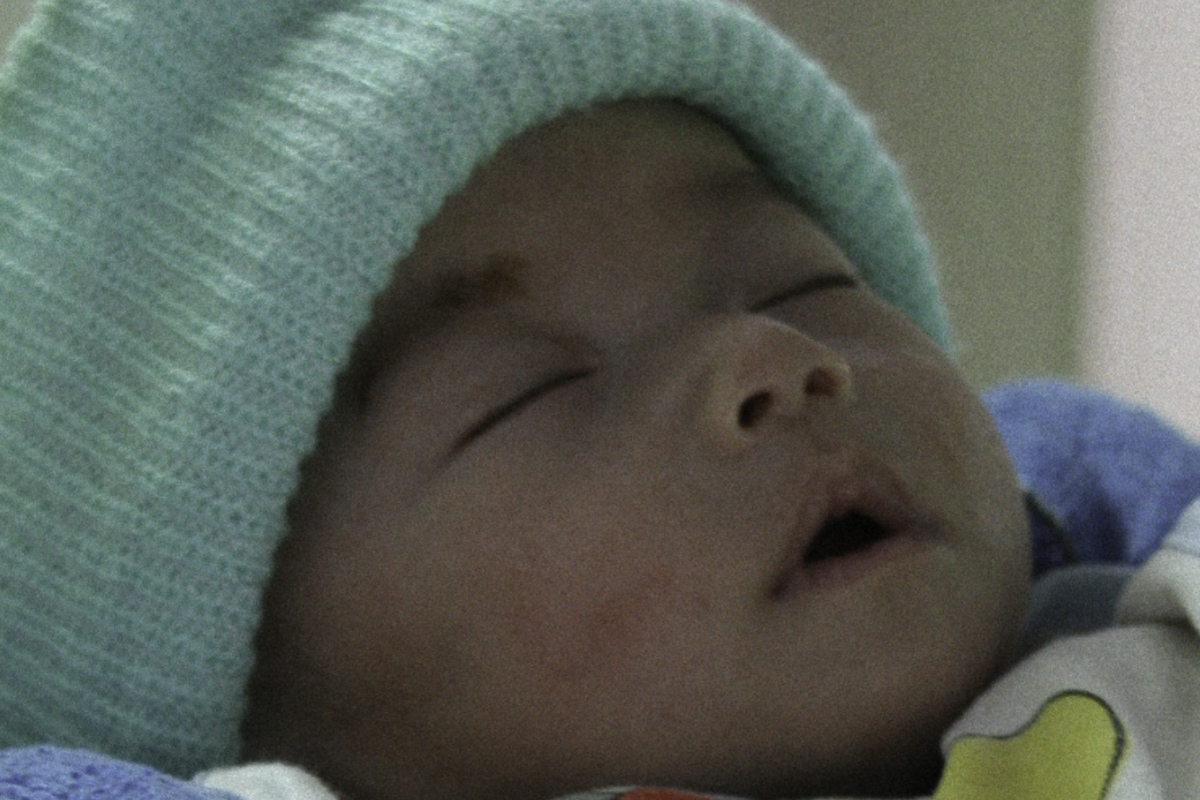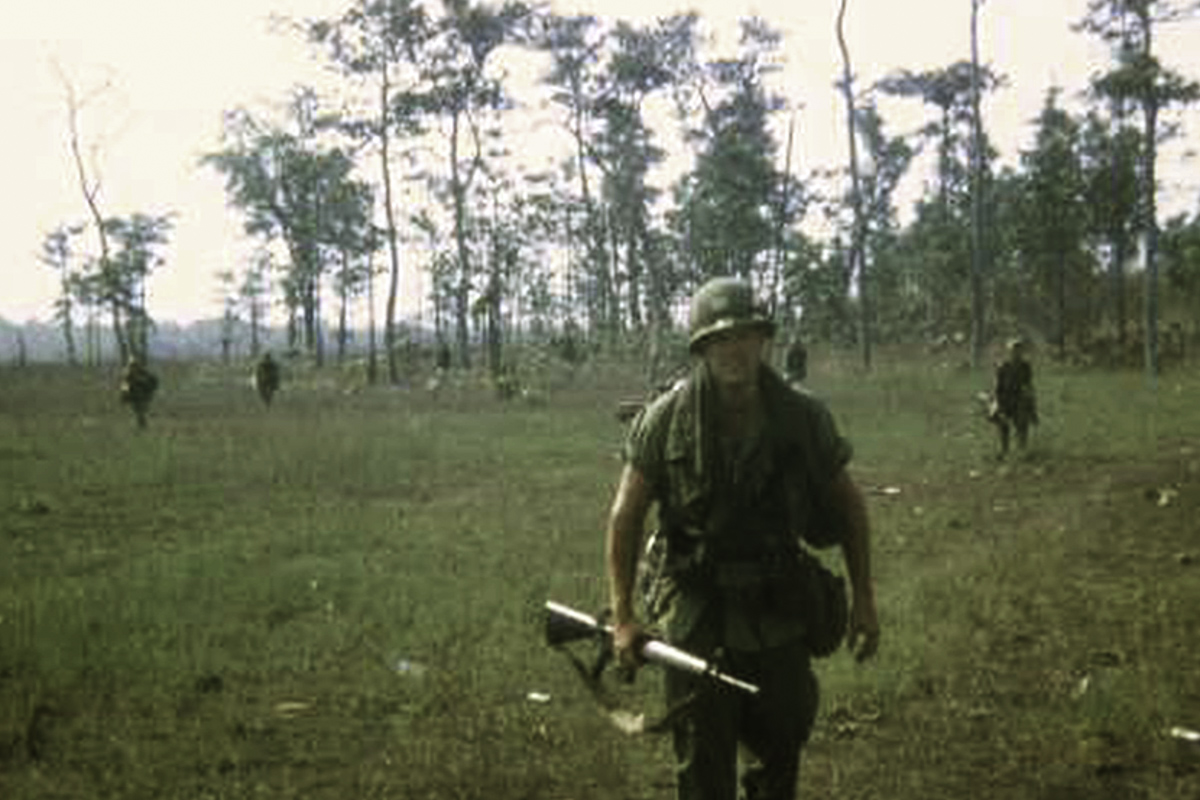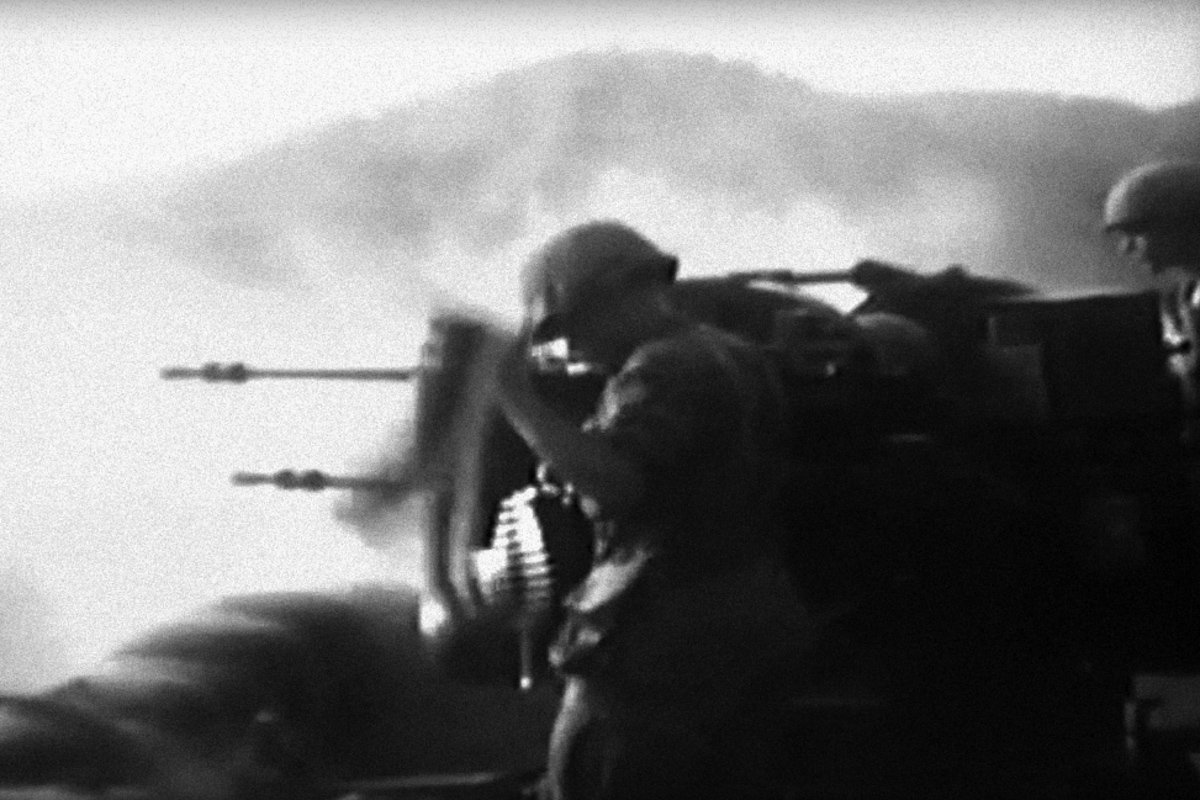
Episode 03 — My Worst Day In Vietnam – Part 1
Podcast: Play in new window | Download
Subscribe: RSS
SUMMARY: How would you describe your worst day in the war? Three Vietnam War Veterans describe their worst days during Vietnam. (Part 1 of 2)
TEASER — Bob Peragallo: General Giap had promised Ho Chi Minh that if the Marines ever crossed the Thu Bon River he would wipe them out, and there was a Vietnamese term for that, and the English translation is that they would be “walking dead men”.
INTRO — Kent C. Williamson: In previous episodes we’ve heard how these veterans first learned about a place called Vietnam. We heard about their first days in-country and some of their first patrols. We’ve also learned about their best days during the war, but today (and next week) we’re going to dive into some of the bad memories from their experiences in Vietnam.
Welcome to the By War & By God Podcast, I’m your host Kent Williamson. As you may know, this podcast is a companion series to the award-winning documentary film By War & By God. What awards you might ask… well, we were nominated for an Emmy in our region, we won Best of Show, Best Editing, Best Direction, and the Human Spirit Awards at the Docs Without Borders Film Festival. We’ve also won Awards of Merit at both The Indiefest and the Impact Docs Awards and most recently we’ve been nominated for Most Inspirational Documentary and Best Director at ICFF, the International Christian Film Festival in Orlando. So if you have yet to see the film, I encourage you to check it out. This podcast is a place where we can go deeper into the stories of these veterans. Over this season you will hear the amazing accounts of people who’s lives were forever changed by the Vietnam war. You’ll hear stories of heroism, and stories of tragedy (like in today’s episode)… but down the road you’ll also hear stories of reconciliation, and you’ll learn about a magnetic force that tugged and pulled and eventually drew these soldiers, medics, machine-gunners and crewman back to Vietnam to serve some of the poorest of the poor of that beautiful land.
But war is not pretty. It is not fun. To ignore the stories of these veterans experiences would be to gloss over the tragedy that war really is. In this episode My Worst Day in Vietnam we’ll hear about some of those bad, dark days… so stay with us…
But before we start, I need to tell you about Big Heaven Cafe. Big Heaven Cafe is a simple web store with a few films to buy, including the documentary By War & By God, so if you haven’t seen the film, or if you need to pick up a copy for a friend, a history buff, a Vietnam veteran that you know, please click your way to Big Heaven Cafe dot com. That’s Big Heaven Cafe dot com and use the coupon code “podcast” to save five glorious bucks on the film. Oh, and don’t forget… 20% of all sales of By War & By God from Big Heaven Cafe go to Vets With A Mission, the non-profit that since 1989 has taken nearly 1400 Vietnam Veterans back to Vietnam. Why? For healing and reconciliation. Alright, let’s get on with today’s episode…
WARNING: Actually, before we jump in I want to warn listeners that there are some rather disturbing events described in this week’s show, so now would be a good time to skip to another episode if you’re sensitive to this type of thing. Okay, here we go…
Kent C. Williamson: Tell me about your worst day in Vietnam…
Bob Peragallo: Well my worst day was May 12, 1966.
Kent C. Williamson: This is Bob Peragallo…
Bob Peragallo: Our company was pretty much overrun. We were in a area near the Thu Bồn River which was south of Da Nang. The Thu Bồn River ran from the South China Sea, a little village called Hoi An up all the way into almost up to the Laotian border. And ninth marines again was the first marine unit that was in Vietnam legally, we were the first marines that were sent there. And we were the most advanced unit in that particular area of I Corps.
DROP IN — Kent C. Williamson: The I Corps was one of four corps of the Army of the Republic of Vietnam. These were the South Vietnamese soldiers the Americans fought alongside against the North Vietnamese Army or NVA and their allies, the Viet Cong.
Bob Peragallo: …the most advanced unit in that particular area of I Corps. And General Giap had promised Ho Chi Minh that if the marines ever crossed the Thu Bồn River he would wipe them out. And there was a Vietnamese term for that. That was, an English translation is that they would be “walking dead men”. And on May 12th, we liberated the village of Dai Loc and then headed to the Thu Bồn River. And as we approached the Thu Bồn River. We set up that night, we had been radically attacked during the day and we suffered some casualties. Every morning marine company sends out a security patrol to run a security check around our parameter. And that patrol inadvertently sprung an ambush that the R-20 Doc Lap VC Battalion had set for our entire company. That was a squad that I was in, but a week before they had transferred me from that squad to another squad – second squad. And so all of my buddies were in that squad and we lost contact with them. And they took the brunt of the ambush and were pretty much annihilated; only two survived from that original squad. And there were about five hundred VC that had attacked this fourteen man patrol.
Kent C. Williamson: VC stands for Viet Cong. Also called the National Liberation Front, the Viet Cong were strong allies of the NVA, the North Vietnamese Army, and a strong force in South Vietnam.
Bob Peragallo: … were about five hundred VC that had attacked this fourteen man patrol. And I was the reaction force to get to that squad and relieve them, and so we ultimately were pinned down – we never did get to them. And it was just a horrible battle that lasted three days. It became a battle that became an operation it was called The Lost Patrol. The 9th marines at this day have a moniker that their battalion is called The Walking Dead, which was that term that Ho Chi Minh used to define them – what would happen to them if we crossed the Thu Bồn River. We killed about a hundred and seventy five VC that day according to the news reports. However accurate it is I don’t know, but I know that we did a lot of damage, but we also suffered a lot of damage. We had fourteen marines killed just from our platoon Alpha Company. And Bravo company responded to our aid, and they suffered numerous casualties. Some estimates were there were between thirty and thirty five marines killed that day. And doesn’t really account for the wounded. And those were bad days ’cause we, we had a squad that was overrun. And they were not nice in that process, what they did to those who were wounded. So it was a bad day, a bad day all around and, yeah, something that I’ll never forget.
Kent C. Williamson: If you’d like to see a picture of the men from the “Lost Patrol” and hear Bob Peragallo talk more about them and their fate, check out the bonus material for the film By War & By God. You can find it on the DVD or on Vimeo On Demand.
Kent C. Williamson: What about your worst day?
Roger Helle: Probably my first worst day in Vietnam was after we had come ashore and were providing security at the airfield at Phu Bai…
Kent C. Williamson: This is Roger Helle…
Roger Helle: …they got us up about 2 in the morning, one morning and said we were going on an operation. And we were heli-lifted into an open area, and we dug in until dawn came. And at dawn they said. we’re looking to make contact with an unknown size enemy force that had overrun a South Vietnamese army unit that night. And that afternoon, my company of 219 marines walked into a 650 man Viet Cong ambush, and in one short 45 minute fire fight that company of marines was reduced to 78 men that had not been killed or wounded. My best friend, that I had gone through training with was killed standing next to me. My platoon sergeant, a Korean War veteran who had kind of taken us under his wing was killed standing on the other side of me. And that was probably my first worst day in Vietnam. The reality check is that, as an 18 year old marine I was not bulletproof.
Kent C. Williamson: So what about your second worst day? If that’s your first worst day, what’s the next? Where does it go bad from there? But first…
BREAK: Were you in Vietnam? What was your worst day in like? We would love to hear your story? Or perhaps you have a family member who served and you’d like to ask them that question. Record it for us, we’d love to hear it in your (or their) own words, or if you prefer typing… we’d love to read it, too. Either way, send it to me at Kent at By War AND By God dot com that’s Kent… K E N T at By War AND By God dot com. I’ll look forward to learning about your experiences and we might even put some of them together into a future episode.
Now back to the show…
Kent C. Williamson: So what about your second worst day? If that’s your first worst day, what’s the next? Where does it go bad from there?
Kent C. Williamson: Roger Helle continues…
Roger Helle: Probably my last worst day was – the day, on my third tour, July 1970 when I was, had a grenade go off at my feet and was critically wounded and medevaced to the 95th Evac hospital at Saigon with multiple wounds, internal wounds, burns, bullet wounds and probably didn’t think that I was going to survive that day.
Kent C. Williamson: Let’s back up a little bit right before there. What led up to that? Tell us what you were doing. What’s happening before that hand grenade shows up?
Roger Helle: I was a platoon leader, I had several squads of Marines and several platoons of what we call Vietnamese Militia…
DROP IN — The South Vietnamese had two national guard type local military units; Regional Forces (or RF’s) and Popular Forces (PF’s). The Popular Forces were organized to defend villages and hamlets from the Viet Cong and North Vietnamese Army, typically with outdated American weapons from as far back as World War II. Meanwhile, the Regional Forces performed a similar role on a District level, but with bit more weapon support. The RF’s & PF’s became known as the “Ruff-Puffs” based on their combined initials and many Ruff-Puff units became known for their courage and bravery.
Roger Helle: …what we call Vietnamese Militia, we were living in the villages, taking Guerrilla warfare into the enemies backyard. And we were on a search and destroy mission to destroy a VC basecamp that we had hit several days before. And we were going back out to blow up the bunkers and destroy the equipment that we couldn’t carry away the first time. And I was walking point when a grenade was thrown and hit me in the leg, bounced off my leg and landed at my feet. And before I could do anything, that grenade went off and just lifted me off the ground, ripped me apart from head to toe. I stood up in shock, was shot twice, knocked to the ground again, and run through the stomach by a North Vietnamese soldier with his bayonet while I was laying on the ground. And that moment, I knew I was going to die in that field.
Kent C. Williamson: What happened next?
Roger Helle: A marine helicopter, a supply helicopter heard the distress call. There were no medevac choppers available, so they diverted from where they were going, landed in a dry rice paddy – and my guys carried me on a stretcher into the back of this supply helicopter. And I was rushed to the hospital in Da Nang. Took me into the triage and – sights, smells that you’ll never forget; charred skin, blood, I was not the only casualty there that day. And I remember the doctor putting the mask on my face, telling me he was going to take me down to surgery. Six days later, in and out of consciousness, I woke up in intensive care. And so, as I was laying in my hospital bed and I saw my twin brother walk past my bed – and went up to a doctor and asked if he could see his brother. And I heard the doctor tell my twin brother that I was going to die, that they had done everything that they could. And my brother asked if he could see me, ‘cause he did not recognize me. So I could see out of the corner of my eye as I lay in that bed, the doctor and a nurse lead him to my bed and just stop. And my brother just stood there with kind of a stunned look on his face, because I was ripped apart from head to toe. I had all of these open wounds, my face was distorted. They said my head was probably the size of a basketball, all black and blue. And he stood there for a moment with a blank look – and literally I could see when the look of recognition came across my brother’s face. He recognized that it was actually me laying there. And he stood there for a moment, and he began to weep. And he started to take a step toward my bed and his legs just buckled underneath him, and he fell against the end of my bed and was just sobbing. And as I was laying on that bed I was three months from my 23 birthday. This was my third tour and my third time getting wounded and, laying in that hospital bed – I didn’t want to die. I was, that fear gripped my heart greater than anything I had experienced in three tours of combat. And I’m not sure why, but I just remember I closed my eyes and I said, “God, if there really is a God, if you let me live, I’ll do anything you want,” and I went to sleep.
Kent C. Williamson: Tell me about… tell me about your worst day in Vietnam.
Cal Dunham: My worst day in Vietnam was in January of ’69 while we were moving through a bunker complex.
Kent C. Williamson: This is Cal Dunham…
Cal Dunham: All hell broke loose, and I found myself withering in pain. The tree that I had dodged behind, was hit with a rocket propelled grenade, an RPG.
DROP IN — Kent C. Williamson: Rocket Propelled Grenades were developed by the Soviet Union toward the end of World War II and were distributed widely to Soviet allies like North Vietnam. They were designed to be easily shoulder fired as the weapon and the grenade weighed just under 10 pounds. With an accurate range up to 500 feet these grenades traveled about 275 feet per second. Upon impact they could penetrate armor over 7 inches thick.
Cal Dunham: …was hit with a rocket propelled grenade, an RPG. That’s when I first realized, because it was relatively new in my arrival to Vietnam within about the first month or so – that this was real, that it was no game. And from that point on, being medevaced – everything that you would go through in that kind of environment was pretty traumatic.
Kent C. Williamson: Tell us about it. What was the whole experience like?
Cal Dunham: Well, we were engaged in fighting, and then this explosion, right where I was, it knocked me unconscious. And when I woke up all I remember was just hollering for the medics. A medic came, dragged me back into a little bit of a more secure safe area, and then they begin to– When it was all said and done, and the firing had ceased, then they brought in the medevac helicopters. And all of us that had been wounded were put on helicopters and sent back, flown back to a secure site where then they began to clean up the wounds, and stitch up the tears and so on. Didn’t really begin to feel a sense of shock until I finally was out of the environment, and then I realized what I had just been through.
Kent C. Williamson: What were your injuries?
Cal Dunham: I had shrapnel through my left thigh, into my right shoulder. My hands and face looked like I’d ran through a briar patch. I was all scratched up, and pock marks and little bleed areas that all they could do was clean them up. And then a bit of a concussion because of where the grenade went off.
Kent C. Williamson: Tell us about some of your friends…
Cal Dunham: Friends. You know we’d all say well, we’re not going to make friends because we don’t want to be hurt by perhaps the loss of friends. But you do, you develop friendships. And there were people in my own squad, that we just lived together. Along the way, we would lose friends, but there was a camaraderie between all of us – that we really did watch out and care for each other. Now they say “I’ve got your back.” Well there was a real sense of that – that you were looking out for yourself, but you were also looking out for those people that were in your squad, that you had developed a relationship with. And you just knew you were all in this together, and we all wanted to get out together.
CLOSE & CREDITS — Kent C. Williamson: Thanks for listening to this episode of the By War & By God Podcast from Paladin Pictures. Next week… Part 2 of My Worst Day In Vietnam. Don’t forget to subscribe to the podcast so you won’t miss an episode. You can learn more about By War & By God at By War And By God dot com. Don’t forget to use the coupon code “podcast” at Big Heaven Cafe dot com to save 5 glorious bucks on your copy of the film By War & By God. You can watch the film for free if you have an Amazon Prime account. Yes you heard that right… for free… Free.
You can find me on Facebook or Twitter. Just search for Kent C. Williamson and while you’re on Facebook go ahead and search for By War & By God and like us. Email me your thoughts about the show at Kent at By War And By God dot com.
By the way, the film has a couple of upcoming festival appearances. It will be at the Bare Bones International Film & Music Festival in Muskogee, Oklahoma on Saturday, April 22nd where it will screen at the historic Roxy Theatre. I’ve been to that theatre before and it’s a pretty cool venue. By War & By God will also screen in early May at the International Christian Film Festival in Orlando. So if you’re in either of those parts of the country, go see it!
Special thanks to the 720th Military Police Battalion for their information about the Ruff-Puff’s. Learn more about them at 720 MP Reunion dot org.
The By War & By God Podcast is written and produced by me Kent C. Williamson with Sound Design and Finishing by Ashby Wratchford. Our Audio Engineer for today’s show is Steve Carpenter. The By War & By God theme music was composed by Will Musser and by the way, for a limited time you can download for free the entire soundtrack at our website. Will Musser is a fantastic composer who’s known for his work on films like Gods Not Dead 1 & 2, The Case For Christ which hits theaters soon as well as another film of mine called Rebellion of Thought. Anyway, get his music free on our website.
Special thanks to the Paladin Team which includes Leslie Wood, Steve Carpenter, Dan Fellows, Steve Lessick, and Ashby Wratchford. Thanks also to my brother Brad who helped record the interviews you heard in this episode back when we shot them for the film. Special thanks also to Liz Orazi for the great show notes she made for last week’s episode and her input on sound effects and to Greg Allen Morgoglione as well for his listening ears and soundscape input for today’s show.
This podcast is a production of Paladin Pictures. Yep, Paladin is a film production company that sees the value in audio podcasts. Why? Because like is the case with By War & By God… the podcast can go deeper into the story than the film ever can. Paladin Pictures is committed to the creation of redemptive entertainment and thought-provoking cultural critique. Learn more about us and our films at Paladin Pictures dot com. That’s Paladin P-A-L-A-D-I-N Pictures dot com.
By War & By God is produced at the Paladin studio in the amazingly wonderful, beautiful little town of Charlottesville, Virginia.
And of course, thank you to our Veterans… those who returned… and especially those who didn’t. Like my wife’s Uncle Floyd. Thank you!
EPISODE 03 – My Worst Day In Vietnam – Part 1
PLAYERS: Bob Peragallo, Roger Helle, Cal Dunham, and your host Kent C. Williamson
LINKS:
Big Heaven Cafe – Save $5 on the DVD of By War & By God with the coupon code “Podcast”
By War & By God Soundtrack – Download the original soundtrack to the film for free!
